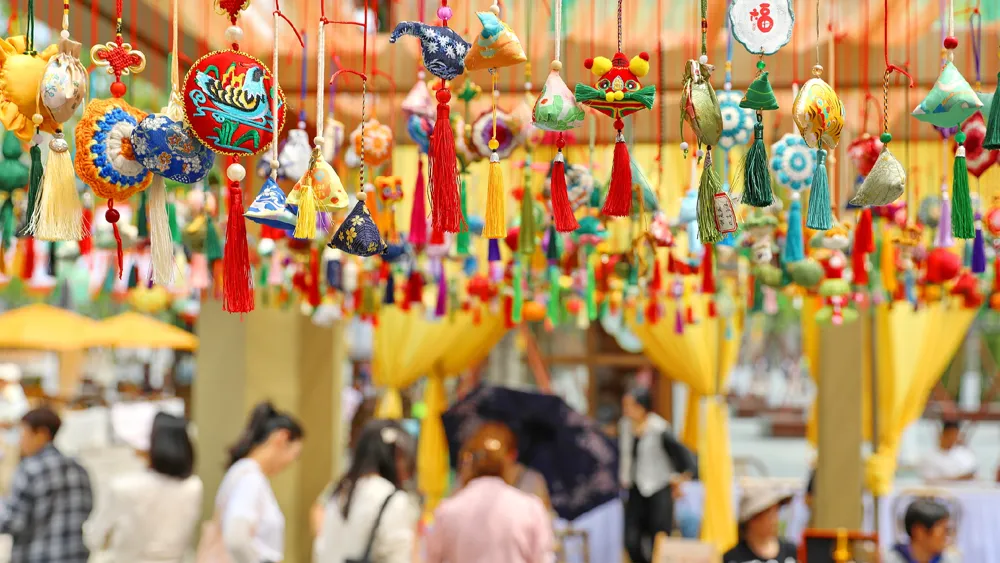Health Benefits of Dragon Boat Festival Traditions Explained

The Dragon Boat Festival, known as Duanwu, is set to take place this Saturday. While the festival is often celebrated for its iconic sticky rice dumplings, dragon boat races, and the memory of the revered poet Qu Yuan, there lies a significant tradition of health preservation steeped in ancient Chinese wisdom.
Held at the juncture of spring and summer, the festival aligns with rising temperatures, increased humidity, and heightened risks of insect-borne diseases. Many rituals associated with the festival have been developed through centuries of practices reflecting a holistic approach toward illness prevention and overall well-being.
One prominent tradition involves hanging mugwort and calamus on doors and windows. These aromatic herbs, prized in traditional Chinese medicine, are known for releasing volatile oils that repel insects and purify the air, effectively aligning with the festival's themes of eliminating evil and averting epidemics.
Another enduring custom is the wearing of embroidered sachets filled with various herbs, such as clove, angelica root, and Sichuan lovage rhizome. Historically believed to have warming, antibacterial, and antiviral properties, these sachets were thought to bolster the body's defenses against seasonal illnesses. The fragrant oils emitted were said to enhance circulation and improve digestive health.
While earlier practices saw children wearing sachets on their chests and adults around their waists, this tradition has evolved. Nowadays, sachets are more commonly placed in homes or vehicles or attached to keychains and bags, reflecting a shift towards portability.
In several southern regions of China, families partake in the practice of herbal baths, utilizing plants like mugwort, calamus, and peach leaves. These baths have both cleansing and therapeutic benefits, addressing skin conditions such as rashes and fungal infections, particularly valuable in humid environments prone to these ailments.
Traditionally, participants also consumed realgar wine, a mixture of fermented rice wine and arsenic sulfide, believed to detoxify the body. However, with modern science illuminating the risks associated with arsenic compounds, this practice has largely diminished, often replaced by safer applications like diluted realgar wine applied to children's foreheads as a symbolic gesture.
The festival's culinary staple, zongzi, is viewed as both a delicious treat and a source of nutritional wisdom. The sticky rice is thought to nourish the spleen and stomach, while ingredients like red dates and beans enhance blood health and add protein. Nevertheless, traditional advice recommends moderation in consumption due to zongzi's dense texture.
Through its customs, the Dragon Boat Festival encapsulates ancient China's foresighted approach to tackling seasonal health challenges. By merging natural remedies with preventive strategies and mindful dietary habits, these traditions illustrate a profound understanding of harmonizing human existence with the environment.
This intricate blend of symbolism and practicality continues to resonate in contemporary society, offering a cultural framework promoting harmony with nature and an emphasis on wellness.
Read These Next

Haiti Faces Health Emergency as Gang Violence Intensifies
Gang violence in Haiti worsens health emergency, impacting healthcare access and raising safety concerns for medical assistance.

Europe and China to Gain from US Scientist Migration
U.S. scientists may relocate to Europe and China due to budget cuts and regulations, boosting research in those regions.

China Weekly News Quiz September 15 to 21 2025
Test your knowledge of recent China events with our weekly quiz, featuring important stories from the past week.
